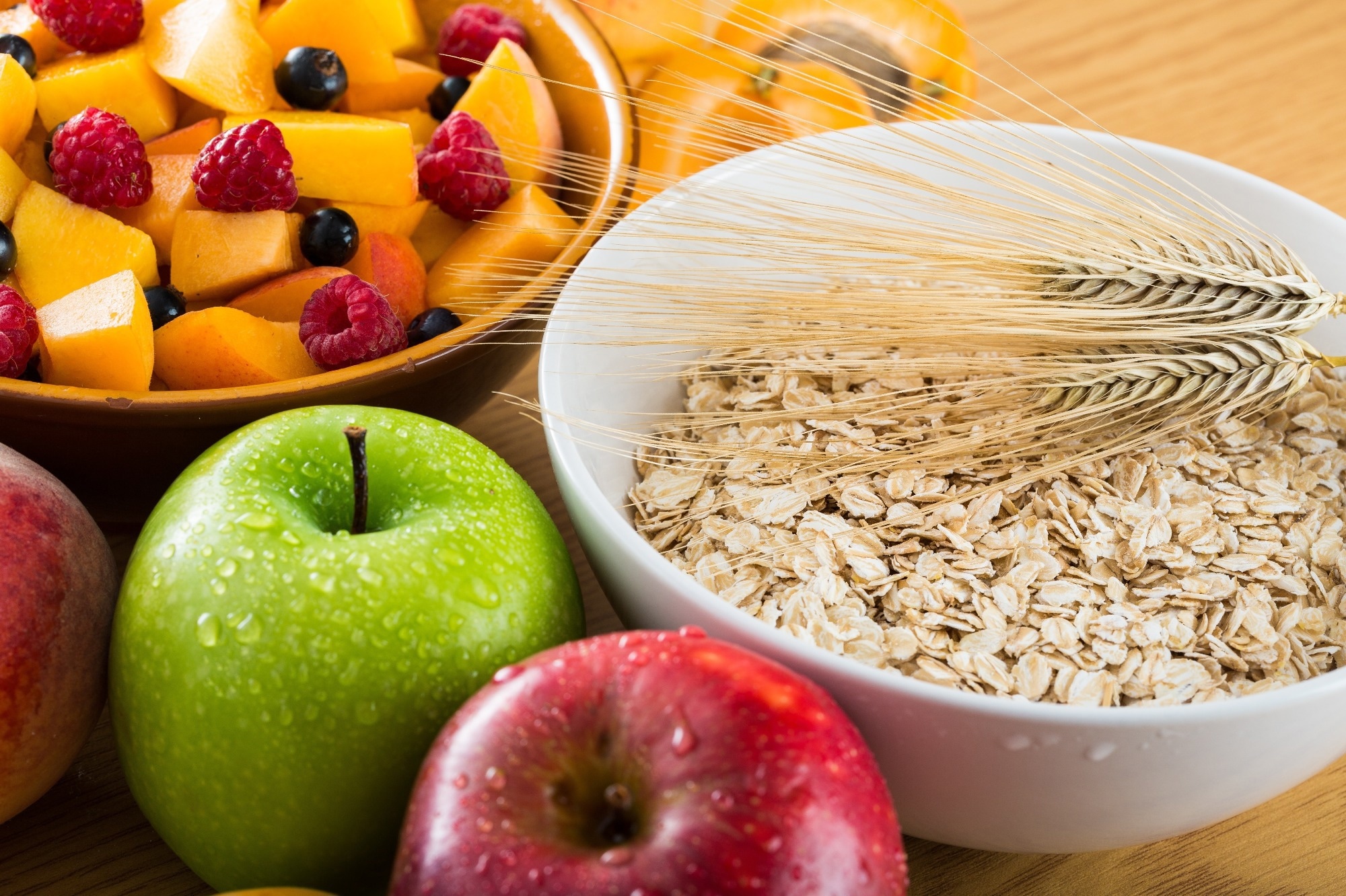In a recent study published in the journal Cell Host & Microbe, researchers investigate how a fiber-free diet in Exclusive Enteral Nutrition (EEN) aids in treating Crohn’s disease (CD) in children by examining its effects on the intestinal localization and metabolism of the pathobiont Mucispirillum schaedleri (Mucispirillum) and its role in preventing colitis.
Study: Fiber-deficient diet inhibits colitis through the regulation of the niche and metabolism of a gut pathobiont. Image Credit: Billion Photos / Shutterstock.com
Background
Inflammatory bowel disease, particularly CD, is becoming more prevalent in children. Chronic gastrointestinal disorders can arise due to a combination of genetic and environmental factors that cause disturbances in gut balance.
The restrictive liquid diet, namely EEN, is often effective for achieving remission in pediatric CD, which may be due to changes in gut microbiota composition. However, further research is needed to develop personalized dietary therapies for CD concerning gene nutrition and the gut microbiome.
About the study
In the present study, bacterial cultures were grown under specific conditions to investigate their role in CD-like colitis. Mucispirillum was anaerobically cultured in enriched Brain Heart Infusion (BHI) broth with added nutrients, whereas Escherichia coli was aerobically grown in Lysogeny Broth (LB) medium and Ruminococcus torques in a custom meat broth.
Specific-pathogen-free mice were used for intestinal histopathology, with their cecum and colon preserved and examined histologically. Intestinal permeability was assessed using fluorescein isothiocyanate (FITC)-dextran, and colitis was induced using dextran sodium sulfate.
Fecal lipocalin-2 levels, an inflammation marker, were measured by enzyme-linked immunosorbent assay (ELISA). Immunofluorescence staining and fluorescent in-situ hybridization (FISH) were performed on intestinal sections for bacterial and mucus layer visualization.
Cecal homogenates from mice were used to study Mucispirillum or E. coli growth. Nucleic acids from these samples were analyzed using quantitative real-time polymerase chain reaction (qPCR) assay.
Microbiota compositions were explored through 16S ribosomal ribonucleic acid (rRNA) sequencing. RNA-sequencing analysis was performed for gene expression profiling.
Bacterial growth in the presence of different carbon sources was assessed using a custom carbohydrate array. Oral bacterial challenge experiments were conducted in mice to study bacterial colonization and inflammation.
Bacterial co-cultures were analyzed to understand interspecies interactions, with hydrogen and ammonia assays revealing metabolic activities. The data were rigorously quantified and statistically analyzed, thus ensuring the study’s reliability.
Study findings
Mice deficient in the Nod2 and Cybb genes were exposed to microbiota-induced spontaneous early-onset CD-like colitis. This experimental trial compared a regular chow (RC) to a fiber-deficient diet (FD). The FD protected the mice from developing colitis, evident through various measures such as reduced levels of inflammation markers and histological examination.
Upon further investigation, a custom-made control diet, in which simple sugars in the FD were replaced with natural fiber sources to match the fiber content in the RC, was used. Diet-induced colitis developed in the mice, thus demonstrating that fiber plays a significant role in CD progression. Fiber also appears to effectively reduce disease symptoms when used therapeutically in mice with inflamed guts.
A significant finding of the study was the impact of FD on the gut microbiota, particularly affecting Mucispirillum abundance in the mucus layer. To this end, the thinning of the mucus layer and increased gut permeability by FD induced the relocation of Mucispirillum from the mucus layer to the luminal compartment. This transition was important, as the site of Mucispirillum within the mucus layer determines its pathogenicity in colitis.
Further experiments revealed that the intact mucus layer is essential for Mucispirillum to colonize the intestine and induce inflammation. Diet-induced alterations in the mucus layer were also found to affect the vertical transmission of Mucispirillum during pregnancy.
Dietary fiber exclusion was found to impact the dissimilatory nitrate reduction to ammonia (DNRA) pathway by Mucispirillum within the mucus layer, thereby reducing its growth-promoting capabilities.
Furthermore, the fiber-free diet altered the abundance of fermentative hydrogen-producing microbes, specifically from the Lachnospiraceae family, thus affecting their hydrogen production and, consequently, the interspecies hydrogen transfer essential for Mucispirillum growth. This was particularly evident with Ruminococcus torques (R. torques), a member of the Lachnospiraceae family, which enhanced Mucispirillum growth through hydrogen transfer.
Conclusions
The study findings provide important insights into the intricate interplay between diet, gut microbiota, and intestinal disease and highlight the impact of dietary fiber on the pathogenesis of CD-like colitis. This research provides evidence for the development of novel dietary strategies for the management of CD, focusing on the modulation of specific microbial interactions in the gut.
Journal reference:
- Kuffa, P., Pickard, J. M., Campbell, A., et al. (2023). Fiber-deficient diet inhibits colitis through the regulation of the niche and metabolism of a gut pathobiont. Cell Host & Microbe. doi:10.1016/j.chom.2023.10.016
